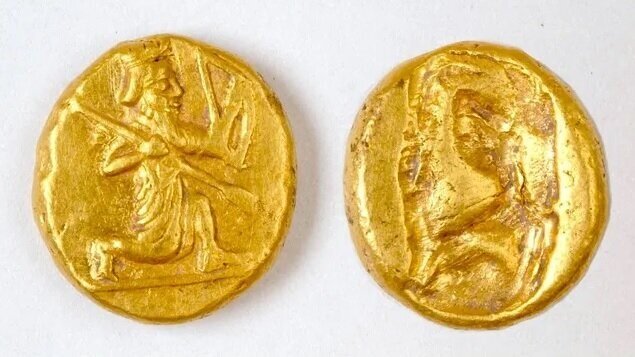Gold coins, believed to be minted in ancient Persia, discovered in Turkey

TEHRAN - Archaeologists in Turkey have unearthed a pot of buried treasure filled with ancient gold coins, believed to be minted in the Persian Empire.
This remarkable discovery was made in Notion, an ancient Greek city located in western Turkey, Live Science reported.
The gold coins were discovered inside a hidden room beneath a residential home in Notion. They feature the design of a kneeling archer, a characteristic element used on the Persian daric, a gold coin issued by the Persian Empire. This distinct design highlights the Iranian origins of the coins.
According to a statement from the University of Michigan, the coins were likely minted in Sardis, a city about 60 miles (97 kilometers) northeast of Notion. Sardis served as the capital of the Persian satrapy of Lydia during the height of the Persian Empire.
Researchers believe that the hoard was possibly used as payment for mercenaries. However, the exact reason why the treasure was buried remains a mystery.
Christopher Ratté, a professor of ancient Mediterranean art and archaeology at the University of Michigan and director of the Notion Archaeological Survey—the project responsible for this discovery—remarked on the rarity of such a find. “The discovery of such a valuable find in a controlled archaeological excavation is very rare,” he stated. “No one ever buries a hoard of coins, especially precious metal coins, without intending to retrieve it. So only the gravest misfortune can explain the preservation of such a treasure.”
The coins provide valuable stylistic clues, indicating they were struck sometime during the fifth century BC. This time frame is being used by archaeologists to piece together the sequence of events that led to the treasure's burial.
AM
